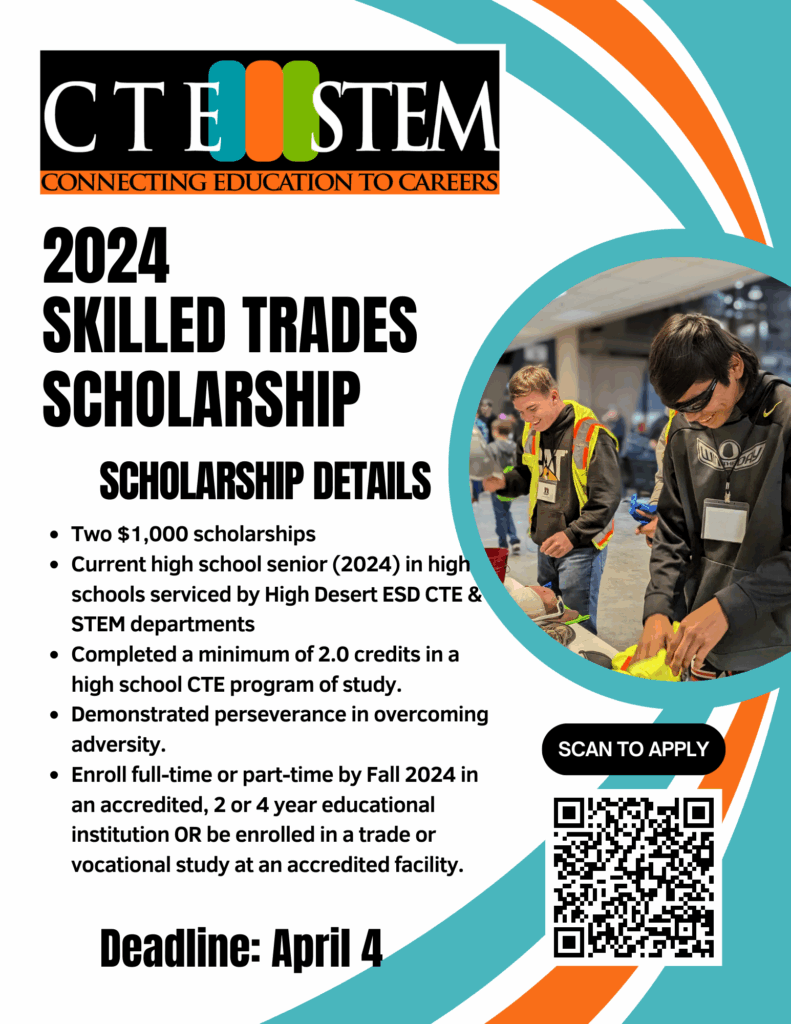My Accidental Discovery: How Skilled Trades Scholarships Opened a Whole New World
Remember that feeling in high school? Everyone, and I mean everyone, talking about "going to college." The four-year university, the dorms, the huge lectures, the degree that would supposedly guarantee you a fancy office job. I felt that pressure, too. I pictured myself in a cap and gown, ready to take on the world… but honestly? The thought of sitting in more classrooms, writing endless papers, and piling up a mountain of student debt just didn’t spark joy in me. In fact, it gave me a bit of a knot in my stomach.
I was good with my hands. I liked seeing how things worked, fixing stuff, building things. But that wasn’t the "smart" path, right? Or so I thought.
The Crossroads: When "Traditional" Didn’t Fit
After graduation, I tried the traditional route for a bit. A semester here, a semester there. And it was okay, but it felt… distant. Like I was learning a lot of theories but not really doing anything that felt real or practical. I saw my friends diving deep into their majors, and I just felt like I was treading water.
One day, I was helping a friend fix his old car. We spent hours under the hood, greasy and frustrated at times, but then that moment when the engine finally roared to life? Pure satisfaction. It was like a lightbulb went off. This was what I enjoyed. This was real.
I started looking into what people called "the trades." Welding, plumbing, electrical work, HVAC, automotive repair, carpentry… suddenly, a whole universe of practical, hands-on careers opened up. These weren’t just "jobs"; they were highly skilled professions, essential to our world, and often paid really well. Plus, people who did these jobs always seemed to have a clear sense of purpose.
But then, the practical side kicked in: "How do I pay for this?" Trade schools, while often much more affordable than a four-year university, still cost money. And after my lukewarm experience with traditional college, I was wary of taking on more debt.
The Big Secret: Skilled Trades Scholarships Exist!
This is where my accidental discovery comes in. I was browsing online, feeling a bit down about the money side of things, when I stumbled upon an article talking about "vocational scholarships." My eyes nearly popped out of my head. Scholarships? For trades?
It felt like finding a hidden treasure map. For years, all I’d heard about were scholarships for academic excellence, sports, or specific majors at universities. Nobody ever mentioned that you could get money to learn how to build a house, wire a building, or fix a crucial piece of machinery.
But they do! And let me tell you, there are loads of them. It’s not just a few obscure programs; it’s a whole world of opportunities designed to help people like you (and me!) get the training needed for these in-demand jobs.
Why These Scholarships Are a Game-Changer
Think about it:
- Less Debt (or No Debt!): This is huge. Starting a career with little to no student loan debt gives you so much more freedom. You can save for a house, invest, or just enjoy your hard-earned money without a huge monthly payment hanging over your head.
- Focus on Practical Skills: Trade school programs are usually shorter and intensely focused on what you need to know to do the job. Scholarships help you get through these programs without financial worry, letting you concentrate on mastering your craft.
- High Demand, Good Pay: Many skilled trades are experiencing shortages of qualified workers. This means good job security and often competitive salaries right out of training. Scholarships help you get into these fields faster.
- A Clear Path Forward: If you’re like I was – feeling a bit lost about your career path – a trade scholarship can provide a clear, achievable goal. You know what you’re training for, and you know there’s a job waiting for you.
Who Are These Scholarships For? (Probably You!)
The beauty of skilled trades scholarships is how varied they are. They aren’t just for one type of person. I found scholarships tailored for:
- High School Graduates: If you’re fresh out of high school and know the traditional university path isn’t for you, there are scholarships specifically designed to help you jump straight into a trade.
- Career Changers: Many people, like me, realize later in life that they want a more hands-on, fulfilling career. There are scholarships for folks looking to make a switch.
- Veterans: Our service members often have amazing mechanical and technical aptitudes. Many organizations offer scholarships to help veterans transition into civilian skilled trades.
- Women in Trades: Organizations are actively working to encourage more women to enter fields like welding, plumbing, and electrical work. They offer specific scholarships to support this.
- Minority Groups: To ensure diversity in the workforce, many scholarships are set aside to support students from underrepresented backgrounds in the trades.
- Local Community Members: Often, local businesses or community groups want to invest in their own area, so they offer scholarships for residents to train for local jobs.
- Specific Trades: You’ll find scholarships just for aspiring welders, or HVAC technicians, or auto mechanics. The more specific your interest, the more targeted funding you might find.
Where to Start Looking (My Tips for Your Search)
Finding these scholarships can feel a bit like a scavenger hunt, but it’s a rewarding one. Here’s how I approached it, and what I recommend:
- Your Chosen Trade School’s Financial Aid Office: This should be your very first stop. They know exactly which scholarships apply to their programs, and they often have lists of local and national opportunities. They might even have internal scholarships you wouldn’t find anywhere else.
- Industry Associations: Every trade has professional organizations. For example, the National Association of Home Builders (NAHB), the American Welding Society (AWS), the Plumbing-Heating-Cooling Contractors National Association (PHCC), and many more. These groups are huge advocates for their trades and frequently offer scholarships to attract new talent. A quick Google search for "[Your Trade] + Association + Scholarship" is a great start.
- Local Businesses and Employers: Many companies, especially those struggling to find skilled workers, will offer scholarships or even apprenticeship programs that include paid training. Contact local construction companies, auto shops, electrical contractors, or manufacturing plants. They’re investing in their future workforce.
- Online Scholarship Databases: Websites like Scholarship.com, Fastweb, and CareerOneStop (a U.S. Department of Labor site) aren’t just for university students. Filter your search by "vocational," "trade school," or specific trades.
- Community Organizations: Check with local Rotary Clubs, Lions Clubs, Chambers of Commerce, or even local foundations. They often have funds dedicated to helping people in their community pursue education, including trade skills.
- Government Programs: Look into state and federal grants or workforce development programs. While not always called "scholarships," they can offer significant funding for trade education.
My Advice for Your Application: Be Yourself, Be Enthusiastic
When you find a scholarship, don’t just fill out the form and hope for the best. Put some real thought into it.
- Tell Your Story: This is where your personal journey comes in. Why are you passionate about this trade? What led you to this path? Scholarship committees want to fund people who are genuinely committed.
- Highlight Your Skills (Even if They’re Undeveloped): Did you fix things around the house? Take a shop class? Volunteer for a building project? Mention it! It shows you have an aptitude and interest.
- Show Your Future Vision: How will this scholarship help you achieve your goals? What kind of work do you want to do after graduation? Committees like to see that their investment will lead to a successful career.
- Proofread, Proofread, Proofread: A sloppy application can make a bad impression. Get someone else to read it over for any mistakes.
- Don’t Be Afraid to Ask for Help: If you’re unsure about part of the application, reach out to the scholarship provider or your school’s financial aid office. They’re there to help.
The Future is Bright (and Built by Skilled Hands)
My journey taught me that there’s no single "right" path after high school. For me, the traditional university route felt like a dead end, but the skilled trades opened up a world of possibilities. And with the help of scholarships, that world became accessible without a huge financial burden.
If you’re feeling that same pull towards hands-on work, if the idea of building, fixing, or creating excites you more than a lecture hall, then please, take this advice from someone who’s been there: don’t let the cost hold you back. Skilled trades scholarships are real, they are out there, and they are waiting to help you build the future – literally.
Start your search today. Your hands-on career, and a future free from overwhelming debt, might be just a few clicks away.



